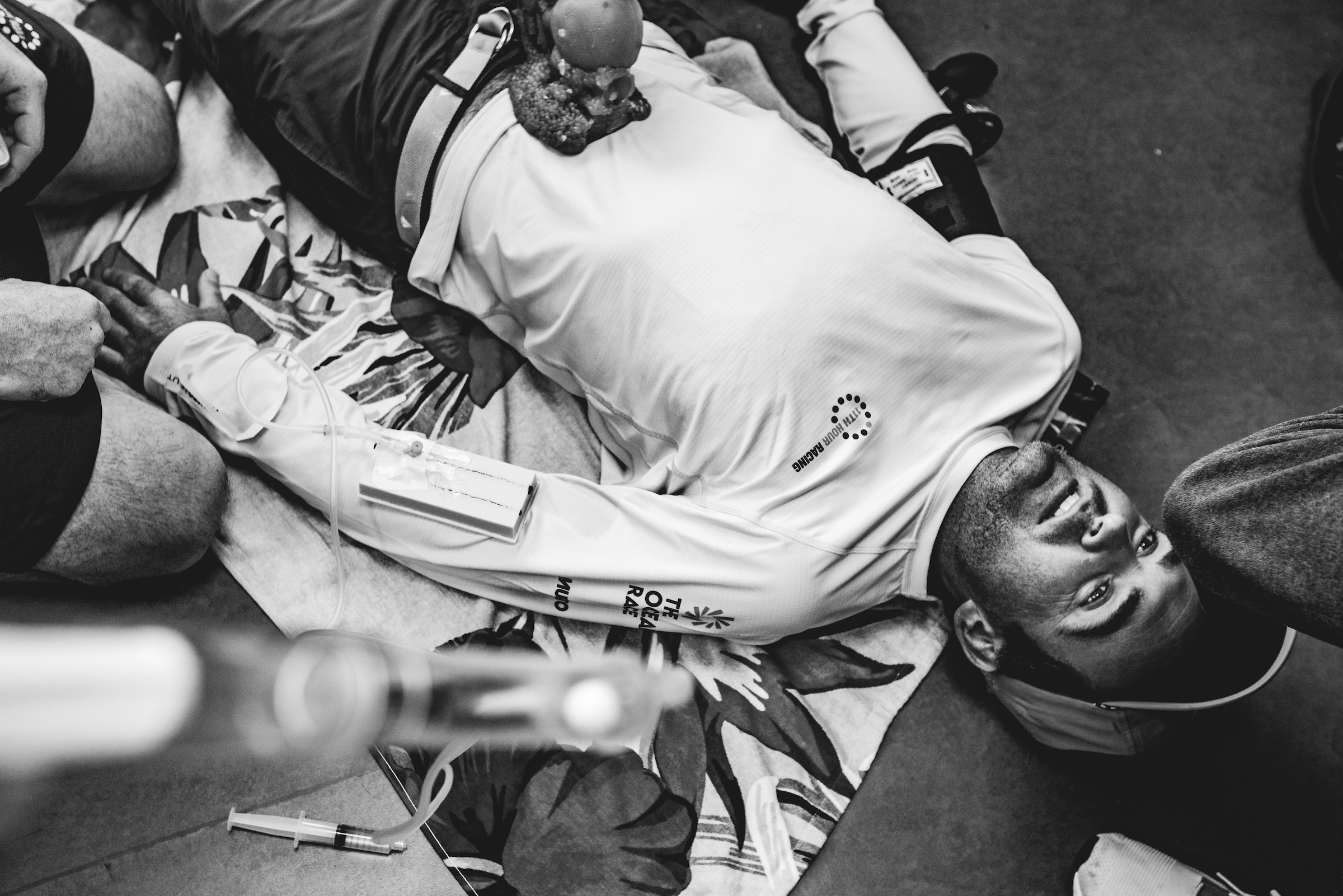THE DISTANCE IS REAL: MEDICINE AT SEA
The Ocean Race teams visit some of the most inhospitable and remote places on earth. So with no ambulances, hospitals, or doctors nearby – how do they prepare in the case of a medical emergency?
Today all The Ocean Race Teams are doing a medical refresher course on-site in Alicante ahead of the race start in eight days time on January 15, 2023.
With teams completing one or more full medical course during their campaign training period, the refresher in Alicante is exactly that: a refresher.
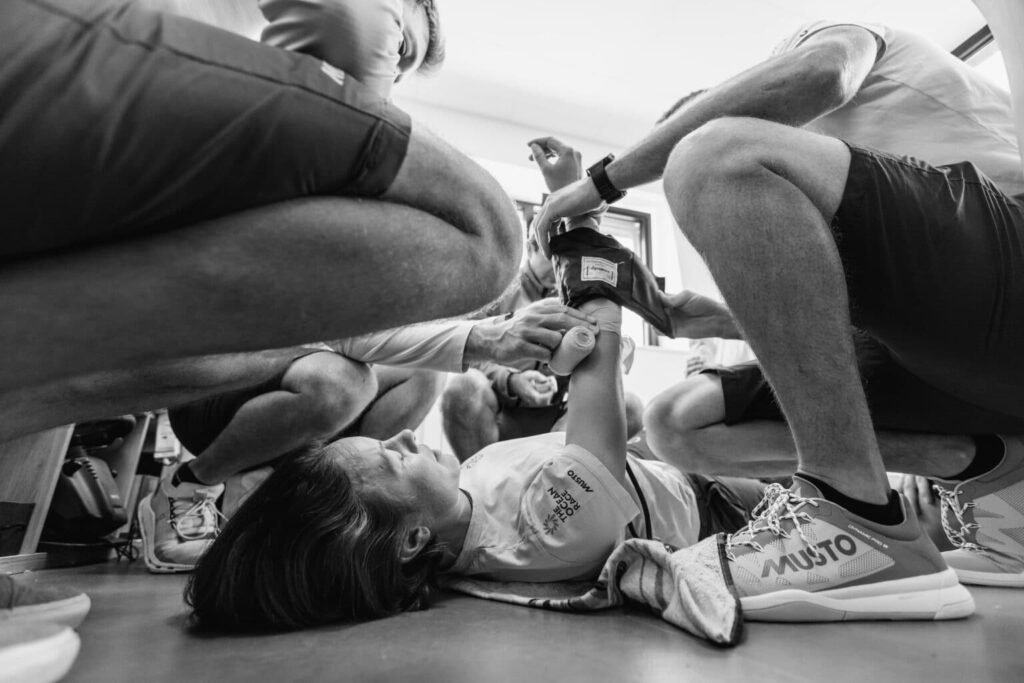
However, like with all things offshore racing, it’s impossible to shy away from the reality of the risks involved and just how important these courses are. Ingrained in the rules of the race, it’s impossible for a sailor to step onboard without extensive medical training. More often than not, there is one sailor per team with additional training, and in the case of 11th Hour Racing Team, that’s our Italian Trimmer, Francesca Clapcich, or Frankie for short.
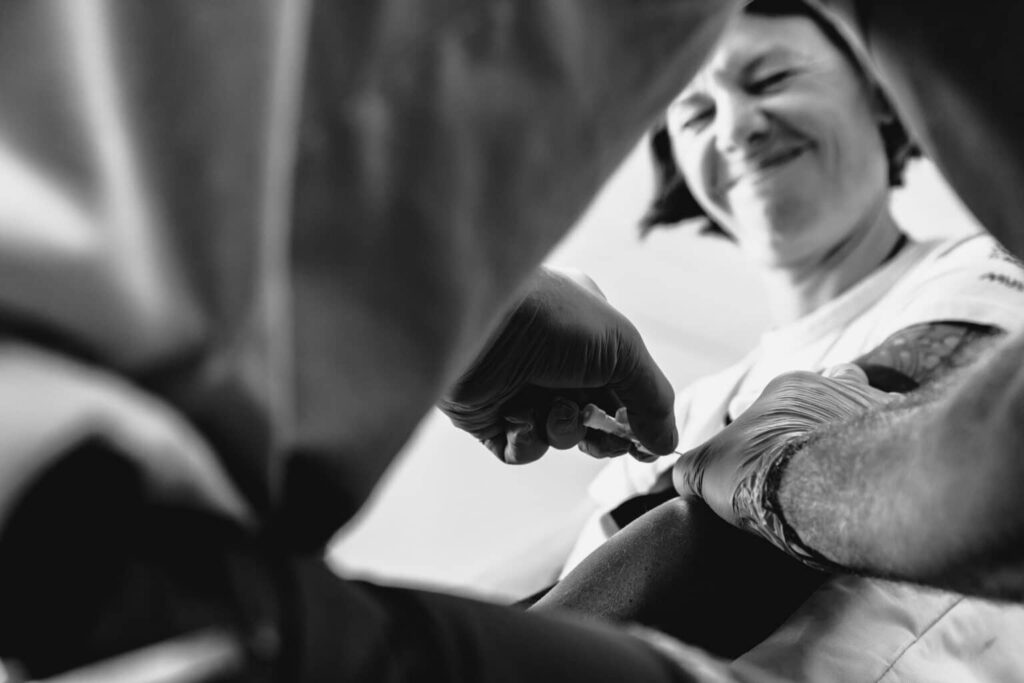
“In the US I am an advanced Emergency Medical Technician (EMT),” she explains. “I can do almost any out of hospital emergency procedure. It’s actually always something I wanted to do, when I was younger my career choices were doctor or sailor.
“In the US [Utah] I work in the mountains and you see a lot of medical situations such as broken femurs and concussions. There’s also a lot of remote rescues as well, especially for mountain bikers or back-country skiers. Nothing quite as remote as The Ocean Race though, you can always get a helicopter to ski resorts or trails… not so much the middle of the ocean!
“At the beginning of every leg we load the emergency medical kit onboard and hope we never, ever, have to use it.”
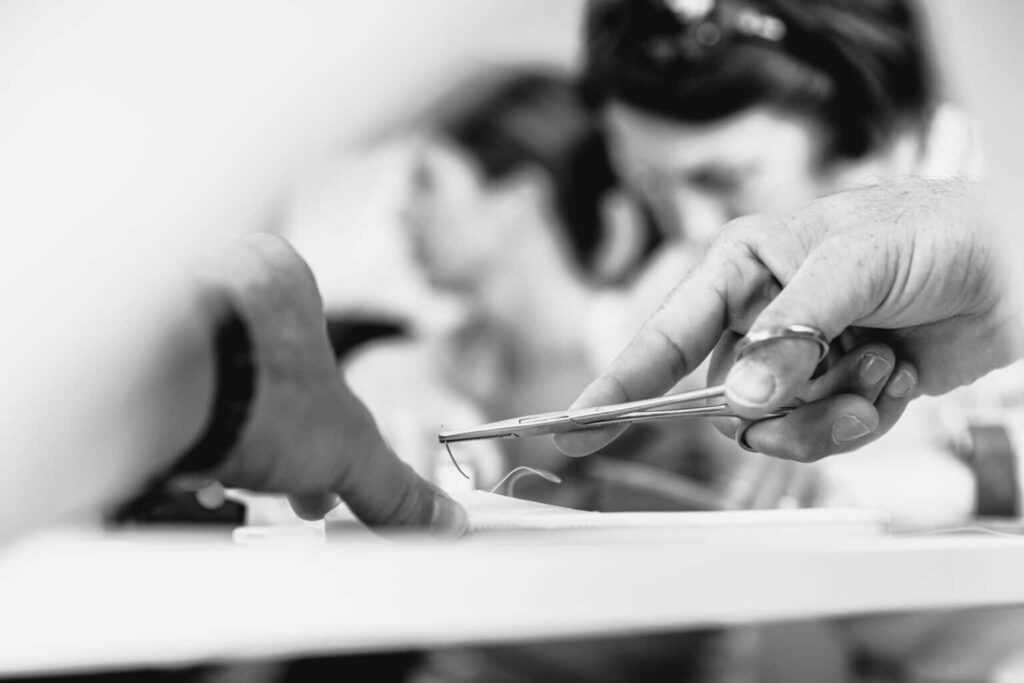
The distance involved in racing around the world is very real, particularly in the Southern Ocean where the word ‘isolation’ takes on a whole new meaning. At times, the closest people to the fleet won’t even be on land, they’ll be on the International Space Station. With a large percentage of The Ocean Race route being inaccessible, it’s essential to prepare for the unexpected.
The closest help and support the sailors have beyond their own capabilities and the other teams in the race,, is an experienced field doctor on the end of the satellite phone 24/7 from Medical Support Offshore (MSOS). MSOS is a UK-based company that provides comprehensive, global medical support for The Ocean Race (among others).
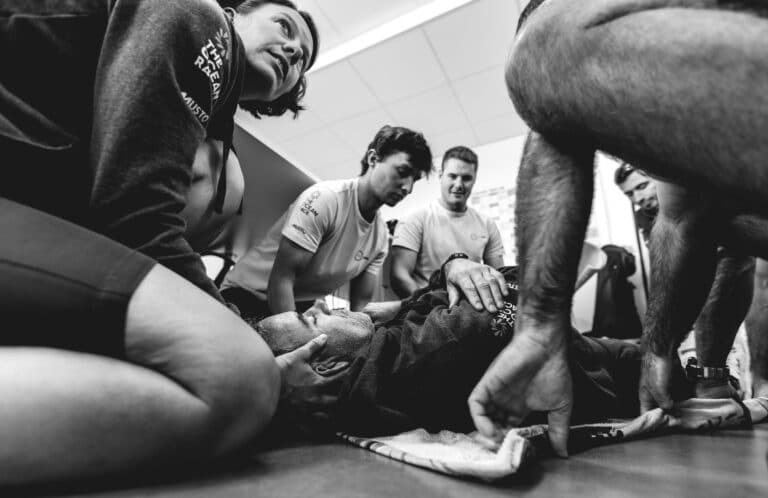
Our team completed the full medical training in Concarneau, France, with an experienced MSOS Specialist Medical Trainer by the name of Amanda Hewson-Beaver.
Below, she explains a little more about the training and gives some top tips.
Amanda, what areas does the course look at?
We prepare the sailors to be able to do minor procedures and deal with medical emergencies. This includes sutures, bleeds, burns, how to deal with breaks, heart attacks, strokes, and asthma. The list is extensive.
There are no medical facilities accessible for the majority of The Ocean Race route so we have to give the sailors all the medicines they’ll need, all the dressings they need, and most importantly, we teach them how to use them. We’ve been teaching how to put in cannulas, showing how to stitch people up, demonstrating how to splint splint breaks. And more!
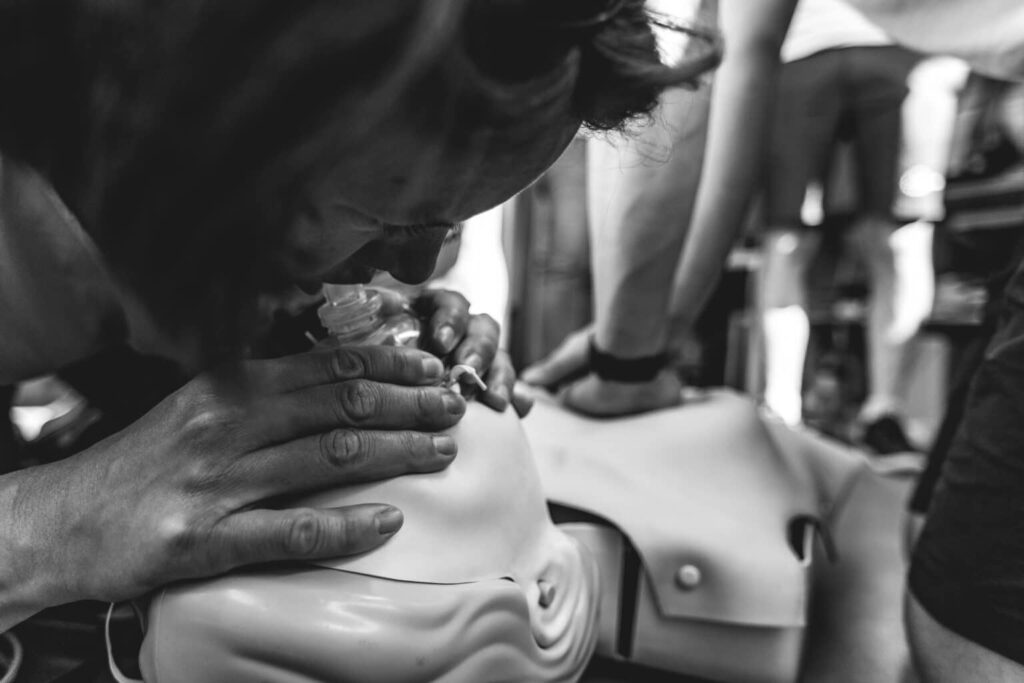
If there’s an incident onboard and the team calls you – what does that look like?
The crew have been trained as to their roles onboard and how to deal with an immediate medical emergency. They have a 24/7 support service and a telemedicine center for the team to call if there is an incident on the boat.
They know they need to look after the patient, get them out of danger, check their response, their airway, their breathing, and work out exactly what’s going on. Simultaneously, a member of the crew will call us and they are put through immediately to one of our doctors who are specialists in extreme and remote medicine.
To be clear, these aren’t just everyday doctors, they’re doctors who have worked in the field, they understand yachting, they understand how to work in harsh environments, and they’re very good at being able to talk to the sailors on the end of the phone, make them feel calm, and tell them exactly what to do, what is needed from the medical kit, and how to apply it.
We teach the sailors to be the eyes and ears for the doctors in the event of an emergency.
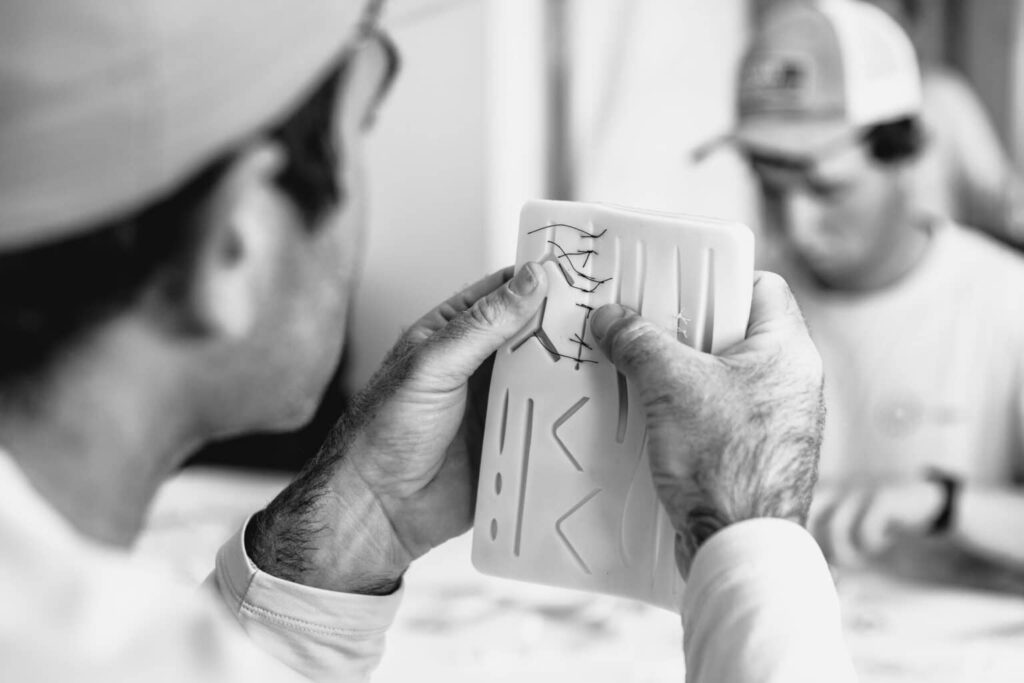
Tell us a little about your experience.
I grew up in Tasmania, Australia. I’ve sailed all my life and I went into nursing. My passion was for remote medicine because you get a lot more autonomy, it’s really interesting, and you get to go to really amazing places. There tends to be a wider variety of injuries, so you get a lot more experience.
I’ve worked in some very remote places, from Port Arthur, Tasmania, to Alice Springs, to the Back O’ Bourke, and places you’ve probably never heard of! Sometimes I was the only medical professional on-site and on call 24/7, in other places we had small hospitals or base hospitals, with the only access through the Flying Doctor Service. I then went on to work for the Flying Doctors for some time as well before my time with MSOS.
What would you like to say to the sailors of 11th Hour Racing Team?
I’d say don’t forget your DR ABC! Stay safe, stay out of trouble, and give us a call if you need us. You have been really easy to teach and super coachable… so the very best of luck!



